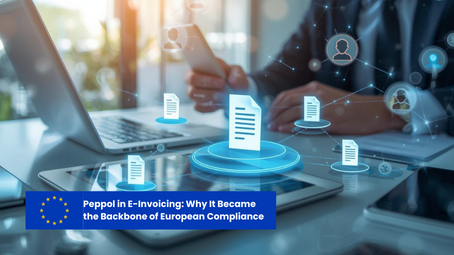Croatia’s Fiscalization 2.0: A New Era of Mandatory E-Invoicing Starting 2026
- Melasoft

- Jun 12, 2025
- 2 min read

Croatia is stepping into the future of tax compliance with its Fiscalization 2.0 reform, set to take effect on January 1, 2026. This reform will require all businesses to switch from paper invoices to electronic invoicing (e-invoicing) for transactions between businesses (B2B), businesses and government (B2G), and even business-to-consumer (B2C) sales.
What is Fiscalization 2.0?
Fiscalization 2.0 is a government initiative to modernize Croatia’s tax system by making e-invoicing mandatory. The goal is to simplify tax reporting, increase transparency, and reduce administrative burdens for companies and tax authorities alike. This system will require invoices to be:
Created in a structured, standardized digital format
Delivered through the Peppol network, a secure platform for exchanging electronic documents
Reported in real-time to the Croatian Tax Administration (Porezna uprava)
Paper invoices will no longer be accepted, marking a major shift toward full digitalization of invoicing processes.
Legal Framework and Timeline
The reform is based on the Fiscalization Act adopted in 2025, aligning with European Union standards for e-invoicing. Key dates include:
September 1, 2025: The law takes effect and a testing environment (sandbox) opens for businesses to prepare their systems
January 1, 2026: All VAT-registered businesses must start using e-invoices for all transactions
January 1, 2027: The requirement expands to include all businesses, including smaller non-VAT and micro-entities

Who Must Comply?
From 2026, all VAT-registered companies, public institutions, freelancers, and businesses involved in B2C sales must comply
From 2027, the mandate covers all remaining businesses, including sole proprietors and exempt micro-entities
How Will It Work?
Croatia plans to use the Peppol network for exchanging invoices, likely following a 4-Corner model where invoices pass through certified access points between sender and receiver. In addition, businesses will have to report invoices in real-time to the tax authorities, either through APIs or integrated Peppol services.
To support this transition, the government will provide a free application called “FiskAplikacija,” enabling taxpayers to access and manage their fiscalized data easily.
Benefits of Fiscalization 2.0
Simplified tax returns with fewer forms and automated data pre-filling
Increased transparency and better monitoring of transactions by tax authorities
Reduced paperwork by eliminating paper invoices and enabling electronic archiving
Improved compliance and reduced risk of tax fraud
Environmental benefits through digital document handling
How Melasoft Can Help
Melasoft is a certified Peppol Access Point and SAP partner with extensive experience in e-invoicing across more than 30 countries. They offer tailored solutions to ensure Croatian businesses can smoothly transition to Fiscalization 2.0. Their services include:
Certified Peppol connectivity with Croatian tax compliance built-in
Real-time reporting and API integration
Full support from testing to deployment
Developer tools and documentation for easy integration
Choosing Melasoft helps businesses avoid penalties, gain early compliance advantages, and stay ahead in the digital tax landscape.





Comments